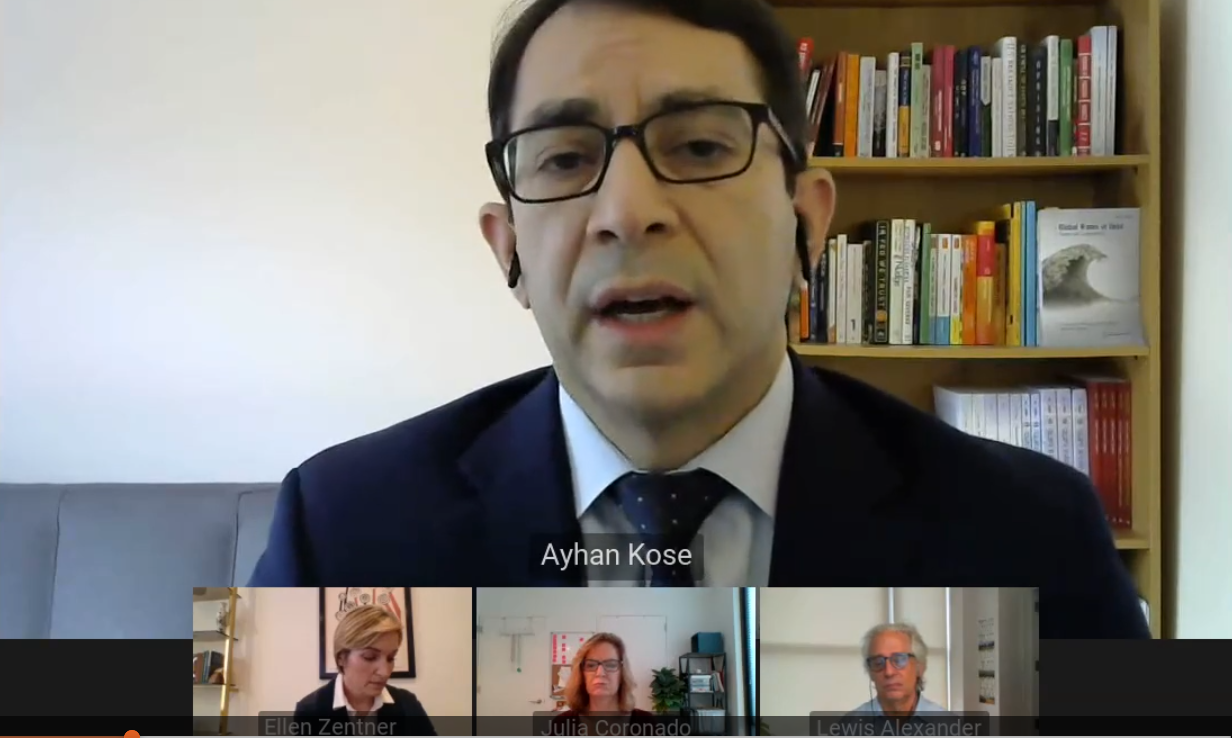The global economy is experiencing a better-than-expected rebound from the downturn caused by the coronavirus pandemic, but many major sources of concern persist, and policymakers’ actions will play a large role in the longer-term recovery, said a panel of economists at SIFMA’s virtual 2020 Annual Meeting on Tuesday.
The consensus is that the economy will expand in 2021, but how much is uncertain, and 5% “would be a fantastic number,” said M. Ayhan Kose, acting vice president of the World Bank’s Equitable Growth, Finance and Institutions Practice Group. However, “downside risks dominate the outlook,” and debt levels are among the big risks, he said.
“Now, maybe advanced economies can handle this type of debt stock, but for emerging market and developing economies — especially some of these frontier market economies that have been new to the financial markets, integrated in a rapid fashion and accumulating debt at a fast clip — we are worried about how this episode will end,” he said.
However, Julia Coronado, president and founder of MacroPolicy Perspectives, said private sector debt is where she worries most about the potential for growth. “Sovereigns always have the printing press,” but a more indebted household sector requires greater deleveraging, which “drags on growth for a longer time,” she said.
Businesses operating in the industries hurt most severely by the pandemic likely were operating with balance sheets designed for an economically stable world, and bankruptcies and permanent job losses are likely inevitable as a result of the pandemic-fueled shock, said Lewis Alexander, US chief economist and head of fixed-income research in the Americas at Nomura Securities International.
Fiscal policy served as an important tool to offset the economic contraction so far, but it likely will become a drag in the medium term, he said.
Federal Reserve actions have helped re-establish the flow of credit, albeit unevenly as banks are becoming more conservative in their lending, Coronado said. Meanwhile, the US has reached a potential “inflection point” with regard to monetary policy and its ability to foster sustained inflation, she said.
Achieving sustained inflation requires purchasing power, and it’s “hard to see that taking off” without fundamental changes in terms of income inequality and wage growth that lags productivity, Coronado said, adding that Fed actions are “not necessarily the game changer” in that area.
In the near future, more stimulus could emerge after the election and give economic growth a lift, and a victory for Democratic presidential candidate Joe Biden could lead to an infrastructure plan that further bolsters the economy, Alexander added.
However, an equal probability exists that the US could enter 2021 with a divided government that could lead to fiscal deadlock, Coronado said.
